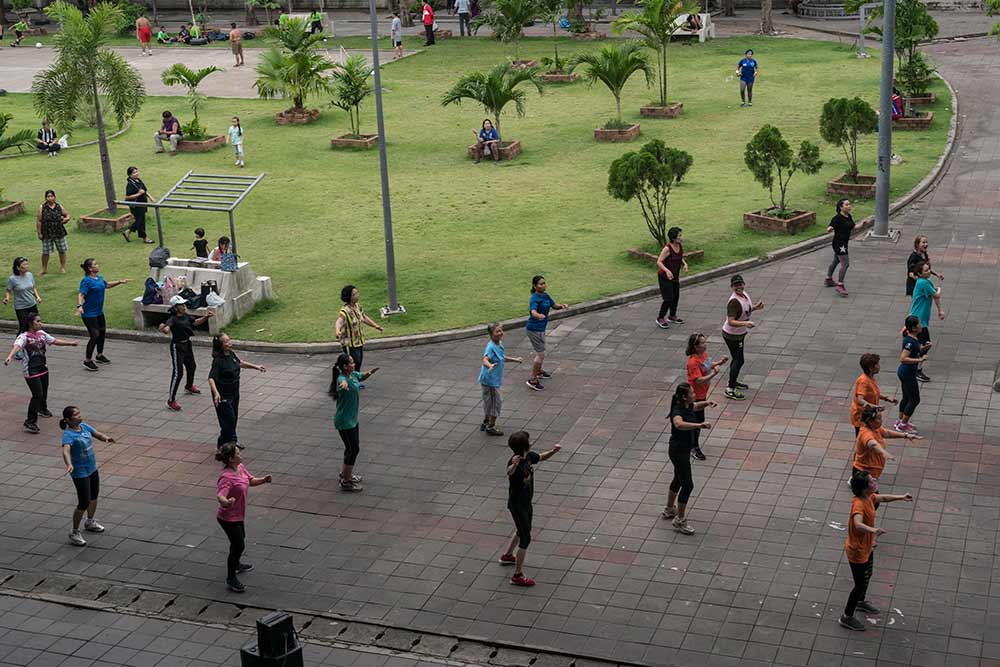
29 September 2015 – Today, on World Heart Day, WHO is calling on individuals to become more physically active. It is encouraging countries to promote physical activity and support decision-makers in promoting more active lives from early childhood and throughout life to reduce the number of premature deaths from noncommunicable diseases.
Physical activity incorporates a wide range of lifestyle and exercise activities, including sports, recreation, walking, cycling, shopping, cleaning, climbing stairs, and more. Participating in regular physical activity can reduce the risk of heart disease, diabetes, overweight and obesity, and breast and colon cancer. It can also lower the risk of stroke, hypertension and depression, and is fundamental to maintaining a healthy energy balance and body weight.
Becoming physically active can prevent cardiovascular disease, which is the world’s number one killer. Cardiovascular disease is responsible for 17.3 million premature deaths worldwide, and by 2030 this number is expected to rise to 23 million. In the Eastern Mediterranean Region, cardiovascular disease, including heart attacks and stroke, is a major cause of disability and premature death. Data show that 62.5% of deaths from noncommunicable diseases in the Region are due to cardiovascular diseases.
Physical inactivity is one of four unhealthy behaviours linked to noncommunicable diseases. Noncommunicable diseases are the top killers in the Region, claiming over 2.2 million lives in 2012, or over 57% of all deaths. Physical inactivity is the fourth leading cause of early death worldwide.
Among all WHO regions, the Eastern Mediterranean Region has the second highest level of physical inactivity. Data from the Region show that physical inactivity is as high as 60% in some countries. In most countries, men are more physically active than women, with as many as 50% of women insufficiently active.
There is a clear need to take urgent action to reverse this trend.
WHO recommends:
60 minutes of moderate to vigorous-intensity physical activity daily for 5–17 years olds.
150 minutes of moderate intensity physical activity throughout the week for 18–64 years olds.
Adults aged 65 years and older with poor mobility should perform physical activity to enhance balance and prevent falls, 3 or more days per week.
This World Heart Day, governments, civil society groups, families and individuals can all take action to reduce insufficient physical activity and improve heart health.
Governments can develop policies that engage all sectors and populations in physical activity and foster active environments in schools, workplaces, communities and cities.
Civil society groups can work with local communities so that people understand the health risks of physical inactivity and how to become more active.
Families and individuals can plan for change by adopting new habits and healthier behaviours, and become more active even when at home.
Watch the animated infographic on physical activity | Arabic
Related resources
Factsheet on physical activity








